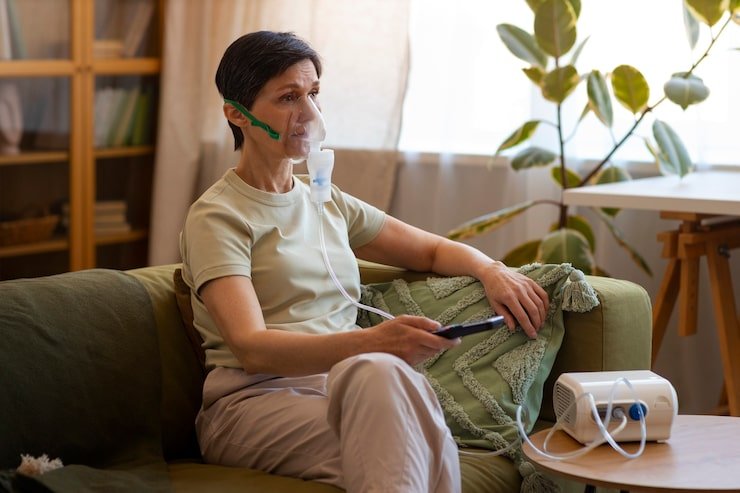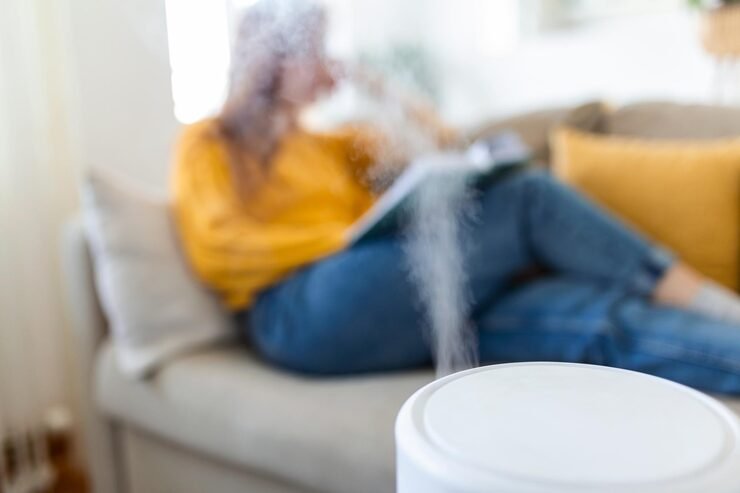The Hidden Dangers in Your Air: Mold, VOCs, and More
- admin323029
- Blog

Indoor air is often more polluted than outdoor air. Many homeowners in Massachusetts do not realize how much this affects their health. Mold, volatile organic compounds (VOCs), and other contaminants are common. They are invisible, yet they harm breathing, sleep, and long-term wellness. Air Quality Testing gives you answers and protects your family.
Why Indoor Air Quality Matters
The air in your home touches every part of your life. Poor indoor air quality increases allergies, asthma attacks, and fatigue. Children and older adults are most at risk. Dust, pet dander, and moisture build-up worsen the problem. Without Air Quality Testing, you will not know what you are breathing daily.
Studies by the EPA confirm that indoor air pollutants are often two to five times higher than outside. This is not a small issue. Your home should be a safe place, not a source of hidden health risks.
Mold and Its Risks
Mold grows wherever there is moisture. Basements, bathrooms, and attics in Massachusetts homes are common problem areas. You might see visible patches, but mold also hides behind walls and under flooring. Breathing mold spores irritates the lungs. Long exposure leads to chronic sinus issues and even serious infections in vulnerable people.
Air Quality Testing detects mold spores even when you cannot see them. Testing provides accurate data so you know if your home is safe or if you need professional removal. Without this step, mold spreads and worsens.
VOCs and Household Chemicals
VOCs come from everyday products. Paint, cleaning supplies, new carpets, and furniture all release VOCs into the air. These chemicals cause headaches, dizziness, and throat irritation. Over time, high VOC exposure damages the liver and nervous system.
Massachusetts homes built with tighter insulation hold VOCs longer. That means toxins stay trapped in your living space. Air Quality Testing identifies VOC levels and helps you decide what changes to make. Ventilation upgrades or safer product choices often reduce exposure.
Other Hidden Pollutants
Mold and VOCs are not the only threats. Carbon monoxide, radon, and asbestos are dangerous as well. Carbon monoxide is deadly without warning. Radon, common in New England soil, increases lung cancer risk. Asbestos is still present in older Massachusetts properties.
Professional Air Quality Testing checks for these hazards. A full inspection ensures you know if your home is safe. Skipping this step leaves you guessing about risks you cannot see or smell.
Air Quality Testing and Massachusetts Homes
Older houses across Massachusetts often have outdated ventilation systems. Newer houses seal air tightly for energy efficiency. Both conditions trap pollutants inside. Air Quality Testing gives clear answers on what you are breathing.
If you plan to buy a house in Massachusetts, request Air Quality Testing during the inspection. This protects you from expensive surprises later. Homeowners in towns like Boston, Worcester, and Springfield benefit from testing as much as those in coastal areas. Moisture and seasonal weather changes make problems more likely.
What Happens During Air Quality Testing
Professional testing is simple. Inspectors use specialized equipment to measure particles, mold spores, and chemical levels. They may collect samples from different rooms. Results show the exact pollutants in your home.
Testing takes only a few hours. Reports explain whether your home needs remediation, improved ventilation, or product changes. Air Quality Testing does not fix problems, but it gives you the knowledge to act.
Practical Steps After Testing
Once you receive results, follow expert guidance. Common steps include:
-
Installing or upgrading air purifiers
-
Improving HVAC filters and maintenance
-
Sealing leaks that cause moisture build-up
-
Removing or replacing contaminated materials
-
Choosing low-VOC paints and cleaners
Air Quality Testing points you toward solutions that protect your home and health. Acting early saves money and reduces long-term risks.
External Resources
For more details, the EPA Indoor Air Quality Guide offers helpful information. The Massachusetts Department of Public Health also provides local resources and recommendations.
Protect Your Family Today
Every day you breathe thousands of times inside your home. Each breath should be safe. Mold, VOCs, and other pollutants are silent hazards. Air Quality Testing gives you the truth and protects your family in Massachusetts. Contact our team today to schedule a test and make your home safer.
FAQs
1. What is Air Quality Testing?
Air Quality Testing measures the level of pollutants inside your home. It checks for mold spores, VOCs, radon, carbon monoxide, and other harmful particles. Professional testing ensures accurate results and guides corrective action.
2. Why is Air Quality Testing important in Massachusetts?
Massachusetts homes often face moisture, radon, and insulation issues. These conditions trap pollutants indoors. Air Quality Testing identifies risks specific to local environments, making it a critical step for health and safety.
3. How often should I schedule Air Quality Testing?
Experts recommend testing every two to three years. You should also test before buying a new house, after renovations, or if you notice health symptoms like headaches or allergies.
4. Does Air Quality Testing also detect radon?
Yes, professional services include radon testing. Radon is common in New England soil and is a leading cause of lung cancer. Air Quality Testing helps detect radon early so you can install mitigation systems if needed.
5. What happens if Air Quality Testing finds mold in my home?
If testing detects mold, professional remediation is required. You will need to remove contaminated materials, fix moisture sources, and improve ventilation. Testing again after removal ensures your home is safe.
Are you worried about the cleanliness of your space?
Let us help you! Cleaning services are our specialty, and we offer a complete range of cleaning and maintenance services. Get a free estimate!


